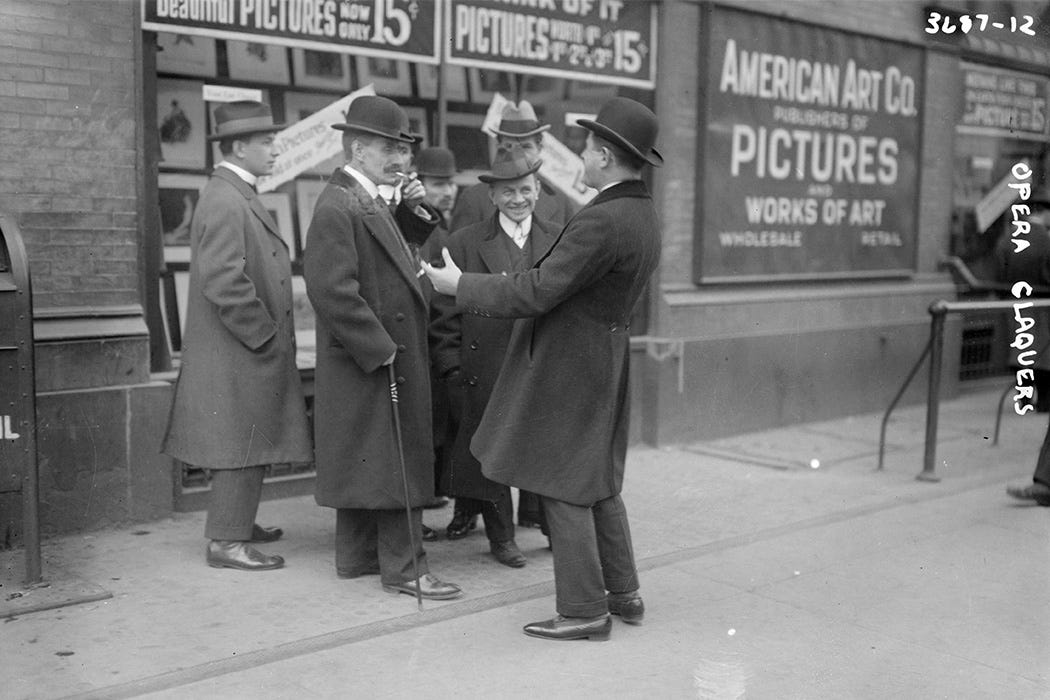Opera Daily 🎶 — Culture is not entertainment, "Stride la vampa”, Opera claqueurs
Welcome to the weekly edition of Opera Daily, the best opera community on the internet. A reminder that you can check out the complete Opera Daily archives and the playlist on YouTube for more selections. If you were forwarded this email by a friend, join us by subscribing here:
Hello friends,
“Culture is not entertainment.”
What?
When I heard these words come out to Riccardo Muti’s mouth in the video below, I had to stop and think for a moment. What the heck is he talking about? Of course, culture is entertainment.
But then I thought about what he was trying to say. If we view culture as entertainment, then it is something that we can live without or substitute with something else that merely occupies our time.
Entertainment is designed to distract from everyday life, often used to fill gaps in the day or escape our regular patterns. Culture is built upon our foundations as people to reinforce and extend the commonality amongst us as humans.
"We forget how much the lack of culture can damage a society. You are here tonight because you need music.”
I think Muti is right. Culture is the invisible bond that ties people together. Art, music, literature, and language forms the framework for our thoughts and behavior. The ideas ingrained in our minds by our culture influence the way we perceive people and situations.
Imagine a world without art, no pictures in children’s books, no poetry, and no music?
"Stride la vampa” from Il Trovatore
While the vocal lines are brilliant, the story of Il Trovatore (eel troh-vah-TOH-ray) by Verdi has a far-fetched plot. In fact, it doesn’t even consist of a single plot, but instead of three separate, intertwining sub-plots (and some critical parts of the story happen before the curtain goes up). To cut a long story short: a mother’s tragic past—and the curse that follows her—destroys two long-lost brothers who compete for the same woman.
What is the context?
At the beginning of Act 2, Azucena recalls the fire that killed her mother in the aria “Stride la vampa” (which translates to "the flames are roaring”). The crackling fire triggers her memory in this aria. She describes her drive to see vengeance on Count di Luna.
🎧 Listening Example (3 minute listen): Georgian mezzo-soprano Anita Rachvelishvili sings Azucena’s Act 2 aria, “Stride la vampa” in the final dress rehearsal at The Metropolitan Opera, 2017–18 season. Production: Sir David McVicar, Conductor: Marco Armiliato
English translation of "Stride la vampa"
The fire roars! The restless mob runs to the fire with happy faces;
shouts of joy echo around; surrounded by killers a woman is brought forth!
Evil shines upon horrible faces
beside the gloomy flame that rises to the sky!
The fire roars! The victim arrives dressed in black, disheveled, barefoot!
A fierce shout of death arises; the echo repeats from hill to hill!
Evil shines upon horrible faces
beside the gloomy flame that rises to the sky!
Paid to clap?
Professional applauders, collectively known as the “claque,” helped mold the tastes of opera audiences.
The practice — which dates back to ancient Greece — was formalized in Paris in the 1820s, when a group began peddling “claqueurs” to opera venues. Acting agencies supplied claqueurs, whose job was to laugh loud, fake tears, request encores, and keep the audience in good humor.
Some opera composers hired groups of applauders to cheer their works – or boo their rivals. Composers Mahler and Toscanini discouraged the practice, and it largely died out during the 20th century.

How did these claqueurs pull this off? Why did it matter what a tiny group of audience members was doing? It appears that humans are greatly influenced by what other humans around us do, whether we like to admit it or not. Even in huge crowds or groups, it only takes about 5% of the people reacting one way to assure the reaction of the other 95%.
Thank you for reading (and listening),
Michele
❤️ If you enjoyed this selection, hit the heart to like it. It helps others find Opera Daily.


I couldn't begin to imagine a world without art, music, books, entertainment, concerts, museums etc., especially as during these hard times of late, it was evident that we all missed that so very much.
Imagine a world without art, no pictures in children’s books, no poetry, and no music?
Can't imagine! A world without art, music, poetry, music is hell on earth. .
Just listening to Maria Callas.